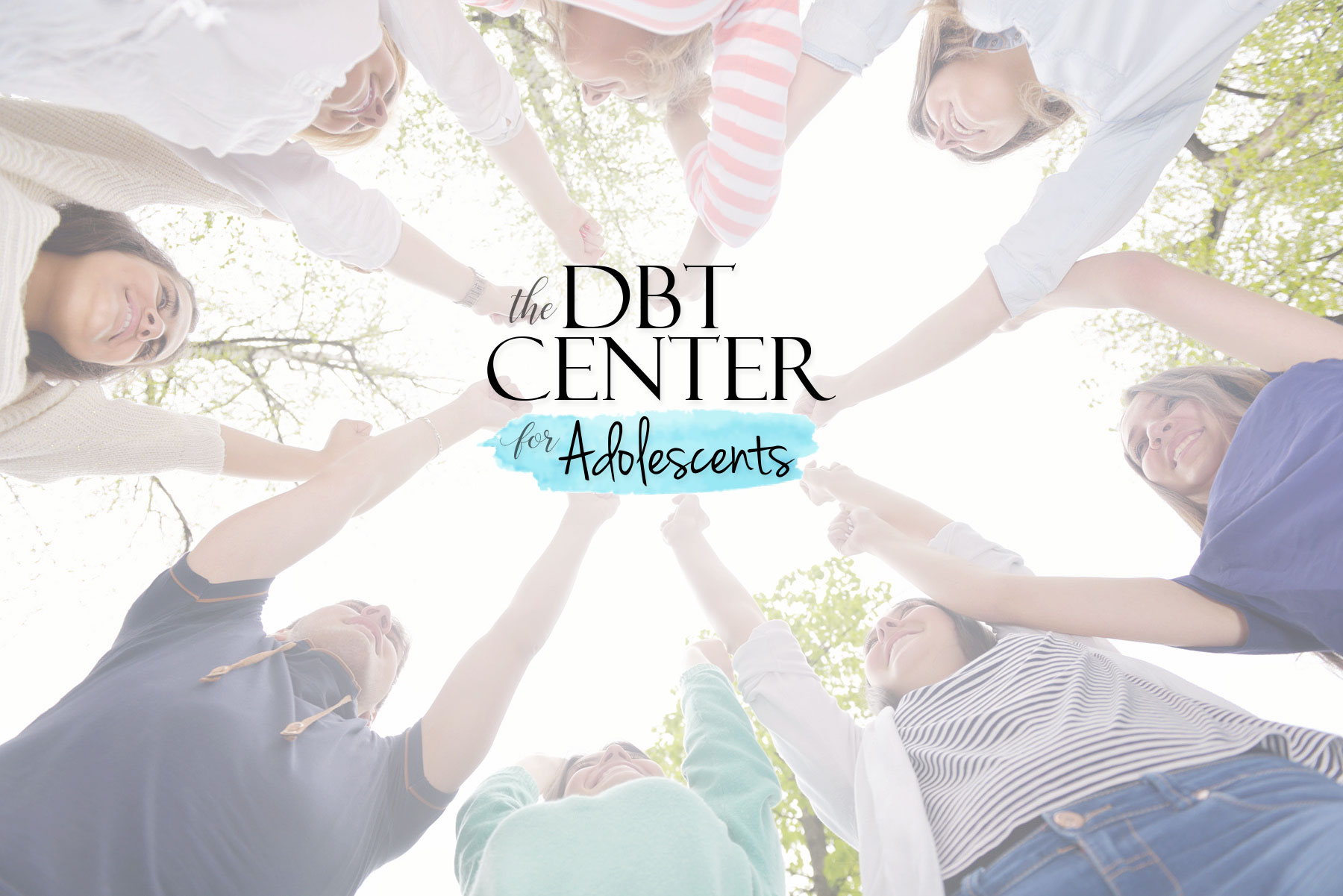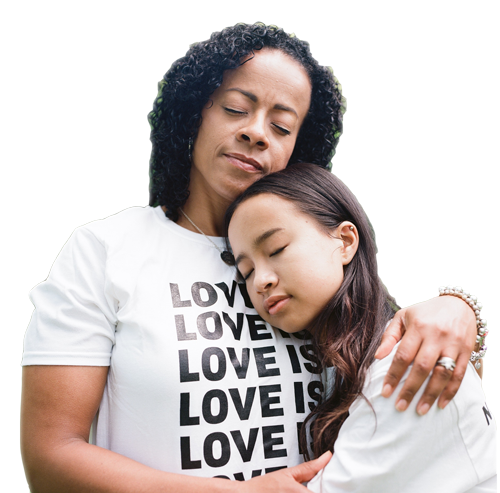
We believe in the power of therapy.
We believe that acceptance and change can happen.
We believe that you can have a life worth living!
Teenagers often experience…
Extreme emotional “ups and downs”
Challenges communicating with their friends (or anyone) at school or home
Not knowing how to make or keep friends
Not knowing how to get out of relationships with mean people
A LOT of anger, and a fear of abandonment if anyone sees their “real” personality
Lost time when under stress, feeling “empty”
Thoughts of: “Who am I?” or “Why don’t I know who I am?”
Confusion about why their emotions are so intense and won’t change
Impulsive actions to get rid of any pain, or to be “cool and accepted” (by using drugs, alcohol, food, shopping, shoplifting, gaming, sex, reckless driving, etc. to “numb out”)
Recurring suicidal thoughts, urges and behaviors
Thinking that self-harm is a good way to punish themselves or get rid of intense pain
Symptoms of Borderline Personality Disorder, Dissociation, Addictions, Persistent and Major Depression, Social Anxiety, and General Anxiety

…if this sounds like you or your teen, we have some solutions for you, and we are here to talk.
Caregivers often experience…
Thoughts of: “Am I too lenient?” or “Am I too strict?”
Confusion about why their teen is in pain/anxious/depressed/angry, and knowing how to support them
Worry about the physical and emotional safety of their teen – whether they are hurting themselves or a peer is hurting them – and how to keep them safe
Communication challenges in getting a conversation started with their teen when “they hate talking to me!”
Fears that their teen doesn’t have friends, or has the “wrong” friends
Worries about teenage peer pressure to be sexually active, watch pornography, and base their worth on how they look on social media
Not knowing how to balance being a friend to their teen and maintaining respect for their leadership in the family
Wondering when to allow their teen to experience failure, and knowing when to step in and help
Questioning their caregiving: “Where did I mess up? I just wanted to prepare them for life.”
Feeling guilty for not being a “good/helpful/happy/perfect” caregiver
At The DBT Center for Adolescents, we use Dialectical Behavioral Therapy (DBT) to treat teens, 14 – 18 years old, and their caregivers.
This program includes:
Individual Psychotherapy Sessions
(50 minutes each)
Between a DBT-trained therapist and adolescent client at least once per week (additional frequency is determined with therapist).
Family Therapy Sessions
(50 minutes each)
One time per month with a DBT-trained therapist, the adolescent client and their caregivers (additional frequency is determined with therapist).
Weekly Attendance in Multi-Family DBT Skills Groups
The Multi-Family DBT skills group is attended by the adolescent client and their parents or caregivers. The participants will attend 4 skills group modules. This process takes approximately 24 weeks for the family to complete.
Weekly Attendance in the Teen-only skills groups (after attending the 4 Multi-Family Groups)
After attending the Multi-Family DBT Skills group with their parents/caregivers, the adolescent client attends 4 teen-only skills group modules with other teens who have completed the Multi-Family groups. This process takes approximately 24 weeks for the adolescent to complete.
The 4 multi-family and 4 teen-only skills groups modules are as follows:
Distress Tolerance
A 6-week group focused on teaching participants to skillfully tolerate the pain and discomfort of intense feelings and emotional reactions. The skills teach acceptance of the situations that we cannot change, and pain that we experience in our everyday lives.
Interpersonal Effectiveness
A 6-week group focused on teaching participants to skillfully get what they want from, or say no to, someone else without destroying or damaging the relationship. These skills teach participants how to have healthy communications, increase self-respect, get friends, and improve their relationships.
Emotion Regulation
A 7-week group focused on changing or getting rid of unwanted emotions. This group is especially valuable for those individuals who feel emotionally vulnerable. An emotionally vulnerable person: 1) is highly sensitive to emotional triggers or prompting events, 2) has intense emotional reactions to triggers, and 3) experiences a slow return to their emotional baseline (or where they started before they were emotionally triggered). The participant will learn how to identify their emotions and change unwanted emotions while also being effective and skillful.
Walk The Middle Path
A 6-week group focused on caregiver and child validation techniques, understanding opposite points of view, and working on changing painful or difficult thoughts and emotions. The group also focuses on helping participants accept themselves, others, and circumstances as they are in the moment. The participants will discuss care-giving styles with clear rules and follow-through, combined with a flexible and democratic style, where discussion is encouraged. The participants will also explore what healthy adjustments in adolescent development looks like.
Mindfulness
Taught and included in the first 2 sessions of each group module. The participants are taught that mindfulness is awareness. They focus on their awareness of themselves, their reactions to their environments, the triggers that their environments create, physical reactions that the participant experiences, and many other occurrences in everyday life. Mindfulness is the foundation for skillfulness in all areas of life – which is why it is emphasized in each module.
Telephone Skills Coaching
Available to the participants and their caregivers when they are not in individual, family, or skills group sessions. The adolescent’s coaching call is with their individual DBT therapist, and the caregiver’s coaching calls are with the Multi-Family skills group leader. Telephone skills coaching is designed as a way to support the participants during the week in using their skills effectively.
Consultation to the Therapist
A service for the therapist, between therapists, that is used to strengthen and continually improve the DBT therapists’ knowledge and experience in treating participants. At least once per week, DBT therapists meet together to provide consultation to each other on DBT therapy, on particular DBT skills, and as a support in providing excellent psychotherapy services to The DBT Center participant.
Still wondering if DBT for teenagers and caregivers is for you?
Ask yourself…
Do you worry about being in the “right” relationship, saying the “right” thing and/or feeling shame about being alone?
Do I often think, “I’m not sure I can handle this life”, “Why does this keep happening to me?”
Or, “Why don’t my friends or family understand me?”
“Do you think, “There is no way I will raise my hand in class. Everyone will judge me.”
Or, “No one understands me and I don’t know how to make them understand me.”
As a caregiver, do you worry about being “too harsh” or “too lenient”? Or, making a mistake that “ruins” your relationship with your teen?
…if this sounds like you, we have some solutions for you, and we are here to talk.
Please contact us for a free 15 minute telephone consultation to help you decide if Dialectical Behavioral Therapy is a fit for you and your teen.










